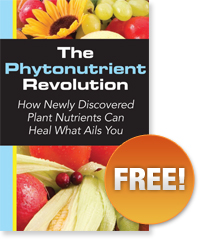By Bonnie Jenkins, Advanced Natural Wellness
Well, we’ve made it through another Valentine’s Day. Candy, flowers and hearts everywhere! But there’s another reason to pay attention to all those hearts. February is heart health awareness month.I hear from people all the time who suffer from one form of heart disease or another. But one of the most under-reported is heart failure. Also called congestive heart failure or CHF, it’s a dangerous condition in which the heart can no longer pump enough blood to the rest of the body. Heart failure results in a lack of oxygen and nutrition to the organs, which damages them and reduces their ability to function properly. Most areas of the body can be affected when both sides of the heart fail. What’s more, as the heart’s pumping action is lost, blood may back up into other areas of the body, including your gastrointestinal tract, arms, legs, liver and even your lungs.
Who’s at risk of this potentially life-threatening condition? Anyone with high blood pressure or coronary artery disease—which encompasses a whole lot of us. The problem is, many people may be suffering from early heart failure without even knowing it. The reason is that symptoms can be vague and can mimic a number of other health problems. They can include:
- Cough
- Decreased alertness or the inability to concentrate
- Decreased urine production and the need to urinate at night
- Difficulty sleeping
- Fatigue and weakness
- Irregular or rapid pulse
- Loss of appetite, indigestion
- Nausea and vomiting
- Sensation of feeling the heart beat (palpitations)
- Shortness of breath
- Abdominal swelling
- Swelling of feet and ankles
- Weight gain
Luckily, there’s a lot you can do to prevent CHF if you are at risk.
While eating a heart-healthy diet, like the Mediterranean diet, can guard against all types of CHF, boosting the amount of whole grains in your diet can slash your risk of heart failure. According to a study of 21,000 people by researchers at Brigham and Women’s Hospital and Harvard Medical School, simply eating a bowl of whole-grain cereal every day can reduce your risk by 28 percent; a bowl every week by 14 percent.
Along with diet, adopting a healthy lifestyle is also key. Don’t smoke, don’t drink and watch how much salt you consume. It’s also important to exercise. Studies show that regular aerobic exercise like walking or biking significantly lowers levels of a hormone called B natriuretic peptide (BNP). This is important since high BNP levels are an indication that heart failure is becoming worse. If you suffer from CHF, talk with your doctor about how to safely begin an exercise program.
But the most important thing you can do if you suffer from CHF might be as easy as swallowing a spoonful or two of hawthorn syrup. While it’s not a cure-all, hawthorn has been shown to increase survival time and improve your quality of life. One of the most impressive studies of hawthorn involved 3,600 patients who were treated three times a day with 300 mg. of hawthorn standardized to 2.2 percent flavonoids. After just eight weeks, their overall heart health had improved. But what was really stunning was that their heart palpitations dropped from an average of 40 percent to 18 percent and edema was reduced from 50 percent to 13 percent. Another study of CHF patients found that the herb increased the ability to exercise without shortness of breath and exhaustion. Pretty impressive, if you ask me.
Are You Suffering From...
- Love handles and a pot belly
- Romance that isn't what it used to
- Forgetfulness and inattention
- Low (or no) strength and endurance
- A sex drive that's shifted into neutral...or worse
If so...you may have Mature Male Burnout. Click here to discover more about this unique condition and what you can do about it.
But you don’t need to suffer from CHF to reap hawthorn’s benefits. This flowering herb contains large amounts of flavonoids that stabilize capillaries and strengthen weak blood vessels. Researchers at the University of Chicago note that antioxidant-rich hawthorn significantly reduces blood pressure and unhealthy cholesterol levels.
So if you are at risk of CHF, consider taking hawthorn. While it’s available in capsules, most doctors and herbalists I know recommend taking it in liquid form. One to two teaspoons taken twice a day can give your heart the edge it needs to keep beating strong for many years to come.
References:
Chang WT. Hawthorn: potential role in cardiovascular disease. American Journal of Chinese Medicine. 2005;33:1-10.
Degenring FH. A randomised double blind placebo controlled clinical trial of a standardised extract of fresh Crataegus berries (Crataegisan) in the treatment of patients with congestive heart failure NYHA II. Phytomedicine. 2003;10:363-369.
Djoussé L. Breakfast Cereals and Risk of Heart Failure in the Physicians’ Health Study I. Archives of Internal Medicine. 2007;167:2080-2085





